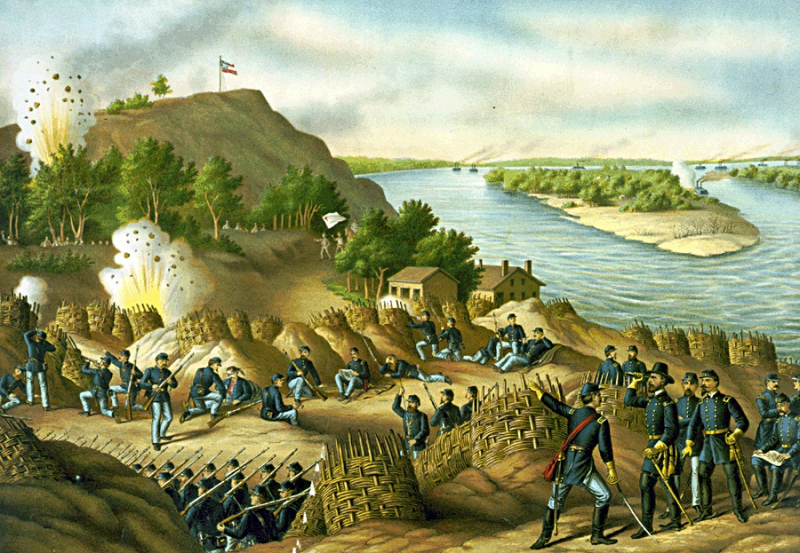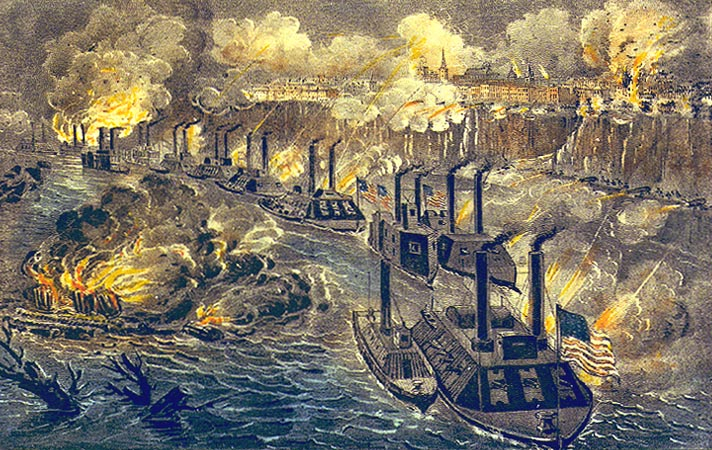Vicksburg
Vicksburg, Mississippi, a fortified port and railroad center on the Mississippi River, was viewed by Confederate President Jefferson Davis as "the nailhead that holds the two parts of the South together." It became necessary for the Union to capture what was referred to as the Gibraltar of the Confederacy as a result.
Grant sent his troops to attack the city multiple times in the middle of May, but they were unable to get past the Confederates' walls. As a result, he was obliged to begin a protracted siege during which he blasted Vicksburg with artillery and fire from Union gunboats, and starved Confederate defenders, and the civilian populace. Many hid in the city's underground man-made caverns.
Grant made one more attempt at an assault in June, sending miners under the Confederate defenses to set explosives and dig a 12-foot-deep crater. However, the Union forces were forced to retreat after being unable to advance out of it. By July, Grant was forced to accept the surrender of Confederate Lt. Gen. John C. Pemberton and his 29,000 soldiers.
With the win, the Union gained control over the entire Mississippi River's vital supply route. The Confederacy was also divided.
Time: May 18, 1863 – July 4, 1863
Place: Mississippi












